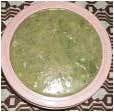New EU rules will prevent cereal manufacturers from making dubious claims. Products high in sugar, fat or salt, cannot be passed off as healthy. Thresholds for such ingredients are under discussion.
Currently firms like breakfast cereal manufacturers promote their products as healthy on the basis of added vitamins and minerals.Concerns about rising levels of obesity, particularly among children, has fuelled a lucrative market in healthy products. Firms making a killing will have to be on guard now.
Kellogg’s, which makes Special K, Frosties and Optivita, and the Nestlé brand, which covers Shreddies and Cheerios, could be among the biggest firms affected when the new rules come to force.
All new foods that make a health claim will have to be checked for accuracy before they go on sale under the rules coming into force.
There will be new legal binding definitions for terms such as 'low fat', 'high fibre' and 'reduces cholesterol'.
New foods which claim to beat medical conditions and diseases, such as heart disease, high blood pressure or high cholesterol, will also have to go through a full authorisation procedure.
Advertisement
Research by Which? found that some 31 cereals out of the 100 best-selling cereals contained more than four teaspoons of sugar per recommended serving - even before any was added at the table.
Advertisement
Which? said that while some progress has been made to make many foods, including cereals, more healthy, problems remain around nutrition and labelling.
Chief policy adviser at Which?, Sue Davies, said: 'Breakfast is important, and some cereals deserve their healthy image, but most simply don’t.
'Cereal manufacturers need to wake up to the fact that people want to eat healthily and provide them with the means to do so by reducing sugar and salt levels and making labelling clearer. With over a billion pounds spent on cereals every year, it’s time they rose to the occasion.'
The European consumer group BEUC has campaigned in favour of the new legislation. It is concerned that the thresholds used to block firms making health claims may be set too high.
If so, this would allow unhealthy products to continue with their current marketing ploys, Daily Mail reported.
The Association of Cereal Food Manufacturers, said: 'Cereals may often be high in sugar but they bring many other wonderful nutrients to the table like vitamins and minerals so they can still be seen as healthy.
'There is a wide range of cereals to meet every occasion and breakfast cereal manufacturers are continually working to improve their nutritional profile.
'In addition, breakfast cereals provide an invaluable source of vital nutrients, ensuring that millions of Britons have a healthy start to the day.'
Source-Medindia
GPL/L








